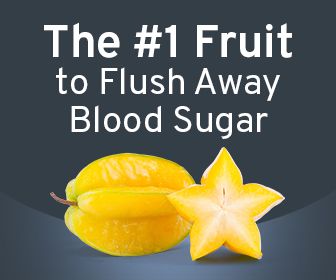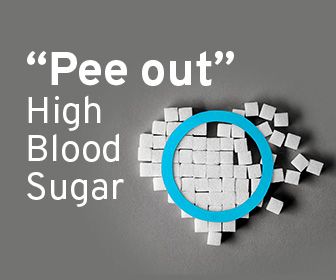Does drinking more water solve dehydration? If that were true, why do some people chug liters of plain water and still feel parched, fatigued, or sluggish? The body needs more than just fluids—absorption and retention determine true hydration.
Water that moves through the body too quickly without proper absorption offers little for deep cellular hydration. Minerals, electrolytes, and structured water—the kind naturally found in fruits, vegetables, and plants—play a key role in hydrating efficiently.
Dehydration often stems from missing these essential components. By focusing on water-rich foods, natural electrolytes, and bioavailable minerals, hydration becomes more effective, improving energy, focus, and overall health.
1. Structured Water: Hydration the Body Recognizes
Water inside fresh fruits, vegetables, and plants differs from tap or bottled water. This structured water, already bound to minerals and nutrients, absorbs efficiently at a cellular level.
Cucumber, watermelon, celery, oranges, and lettuce provide structured water along with essential minerals.
Coconut water naturally supplies potassium and sodium, making it one of the best plant-based electrolyte sources.
Aloe vera juice delivers amino acids and polysaccharides that support hydration and gut health.
Structured water in plant foods also carries the harmonic frequency of the earth, aligning with the body’s natural rhythms and promoting optimal hydration.
2. Cold-Pressed Juices: Liquid Nutrition for Deep Hydration
Fresh juices provide bioavailable vitamins, minerals, and antioxidants that reach cells quickly. Unlike store-bought juices, which are often loaded with sugar and preservatives, freshly made juices retain their full nutrient profile.
Carrot juice supplies beta-carotene, supporting skin hydration and reducing oxidative stress.
Beetroot juice enhances circulation, delivering oxygen and nutrients to cells more efficiently.
Celery juice provides natural sodium, which helps balance fluids in the body.
Kale and spinach juices offer magnesium and potassium, both critical for water retention and muscle function.
Drinking fresh juice, especially on an empty stomach, allows rapid nutrient absorption, helping with energy levels, digestion, and cellular hydration.
3. Electrolytes: The Key to Retaining Water
Drinking excessive plain water can flush out essential electrolytes, leaving the body depleted rather than replenished. Sodium, potassium, magnesium, and calcium support fluid balance and maintain muscle, nerve, and organ function.
Adding a pinch of mineral salt (sea salt or Himalayan salt) to water replenishes lost sodium and improves absorption.
A homemade isotonic drink with lemon juice, honey, and mineral salt provides the ideal balance of minerals for hydration.
Coconut water and bone broth supply natural sodium and potassium, preventing electrolyte depletion.
With the right balance of electrolytes, water stays where it’s needed instead of passing through too quickly.
4. Organic Minerals: Why They Matter for Hydration
Minerals from natural, plant-based sources integrate seamlessly into biological functions, unlike synthetic or inorganic minerals that the body struggles to utilize.
Dark leafy greens provide magnesium, supporting water retention and muscle relaxation.
Seaweed and algae (spirulina, chlorella) offer trace minerals, including iodine, which supports thyroid function and metabolism.
Hemp seeds, almonds, and sesame seeds contain calcium and zinc, both crucial for cellular function and hydration.
When the body receives these essential nutrients, hydration improves, energy levels stabilize, and tissues remain properly nourished.
5. Hydration Through the Skin: Absorbing Water Without Drinking It
The skin plays a crucial role in hydration. Certain practices enhance water absorption, reduce dehydration, and improve overall hydration status.
Epsom salt baths provide magnesium sulfate, relaxing muscles and replenishing lost electrolytes.
Applying aloe vera gel directly to the skin supplies structured water and natural hydration.
Oil-based hydration (coconut oil, shea butter, or olive oil) locks in moisture and prevents water loss.
Topical hydration works alongside internal hydration, supporting long-lasting moisture retention and skin health.
6. Avoiding Hydration Blockers: What Depletes the Body’s Water Supply
Certain habits strip the body of water and disrupt hydration balance. Even with proper fluid intake, dehydration can occur if water-depleting substances remain in daily routines.
Caffeine and alcohol act as diuretics, increasing fluid loss.
Processed and salty foods create imbalances that interfere with efficient water retention.
Artificial sweeteners and sodas disrupt gut health, reducing water absorption in the digestive system.
Limiting these substances helps the body retain and use water more effectively.
7. The Smart Way to Hydrate: A New Approach
Drinking water alone doesn’t guarantee hydration. The body needs minerals, electrolytes, and structured water to absorb and retain fluids efficiently.
Optimal hydration comes from:
Eating water-rich foods like fruits, vegetables, and seaweeds.
Choosing mineral-rich water instead of plain, demineralized water.
Supporting hydration with homemade electrolyte drinks.
Balancing water intake with the right minerals for better absorption.
Hydrating through the skin with baths, oils, and topical treatments.
Without these elements, hydration remains incomplete, leading to fatigue, headaches, muscle cramps, and long-term health issues.
With the right choices, hydration becomes effortless, energizing, and deeply restorative. The body thrives when nourished with structured water, natural electrolytes, and bioavailable nutrients—just as nature intended.
Mastering Hydration: A Simple Shift for Lifelong Vitality
Hydration influences energy, focus, and long-term resilience. Every system in the body depends on it, yet many unknowingly operate in a state of mild dehydration, attributing fatigue, headaches, or sluggish digestion to other causes. When hydration improves, everything from metabolism to cognitive function benefits.
Chronic dehydration does more than make you thirsty—it accelerates aging, weakens immunity, and affects performance on every level. Over time, neglecting proper hydration forces the body to adapt to deficiency rather than thrive in abundance. Small, consistent changes—prioritizing mineral-rich water, whole-food electrolytes, and structured hydration—allow the body to rebuild what it’s lost.
Water alone isn’t the solution, but how you hydrate daily determines how well you function for years to come. Health is a sum of habits, not quick fixes. The body rewards those who nourish it intentionally. Make hydration a foundation, and strength, clarity, and vitality will follow.





